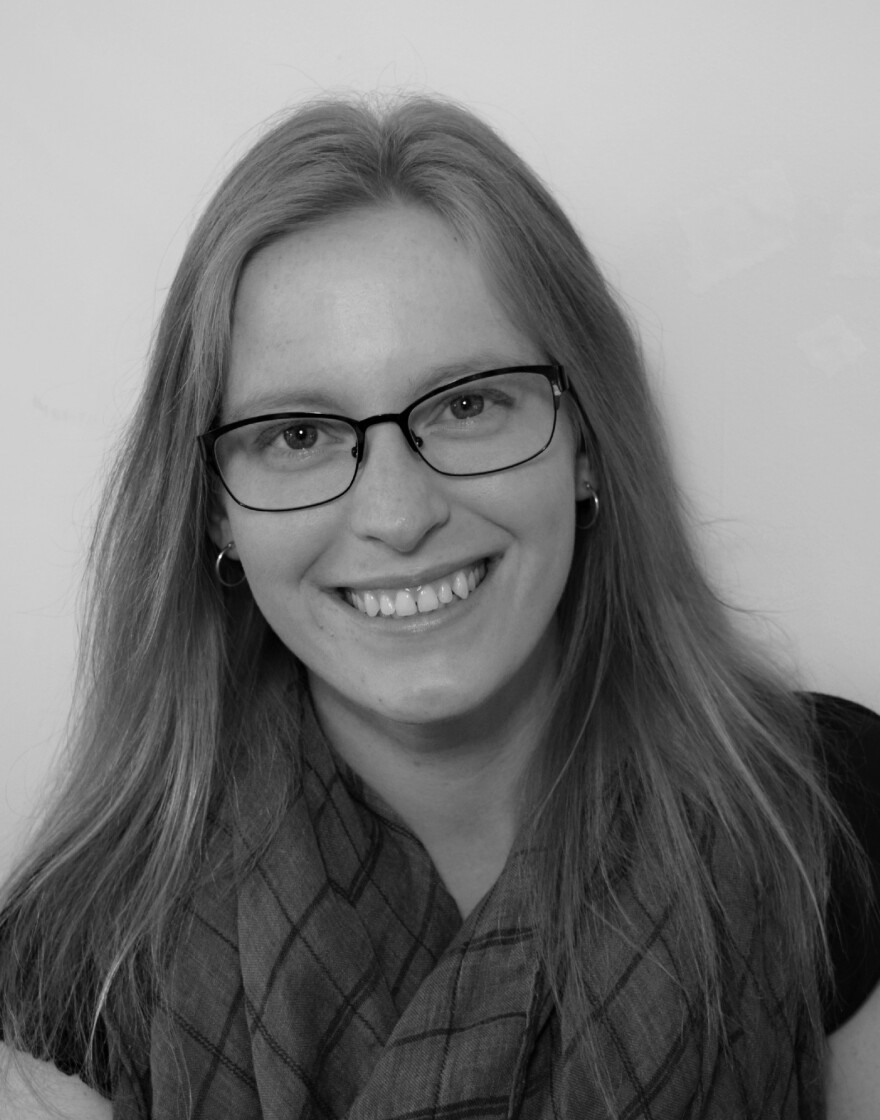When did we stop telling folk tales? The days of white-haired elders sitting by fires under the stars recounting local legends might be over, but storytelling and oral traditions aren't.
In fact, Kansas City playwright Lindsay Adams has created her own folk tale.
"I just had this image of the woman crying and the river flowing and keeping all the wheat alive. I wrote it down in a notebook," she says. "And then I came back to it, started writing and it just sort of came. It was pretty magical."
Adams has always been interested in the relationship between myths and history.
"I love the way folk tales explain these huge phenomena — this huge part of history with something small," she says. "I started thinking about the Dust Bowl. What is a folk tale that begins that?"
Adams, who won a national award for student playwrights last year, began researching folk tales and fairy tales of Missouri, but didn't find one that "spoke" to her, she says.
"So I was like, 'Wow, maybe I just need to write one for myself then.'"
Her play, River Like Sin, takes place in rural Kansas in the 1930s. The young protagonist, Wren Walker, discovers the Town Ghost, an elderly blind woman whose tears supply the river, keeping Wren's town alive. After Wren starts visiting the Ghost, however, she stops weeping, causing the river to dry up and serving as the catalyst for what would be recognized as the Dust Bowl.

Though she's now based in Kansas City, Adams grew up in Searcy, Arkansas, a town with a population just under 24,000. After earning an English degree with a minor in theater from UMKC, Adams pursued an MFA in Washington, D.C., where she's lived for the past few years.
During her play writing seminar, Adams says, she found it more important than ever to speak from her own experience growing up in a rural community, especially after the November 2016 elections.
"Suddenly everyone wants to understand what it is to live in the Midwest and in a small rural town. There's a newfound interest in that," she says. "Well, I grew up there so let me tell you about it. I feel like I know these people."
Living in Washington D.C. put Adams in the frame of mind to be able to appreciate her origins more fully, but she also acknowledges the nuances that come with living in communities so isolated.
"There's something really beautiful in these very small, tightly knit communities, but there's also something insidious that comes with being so insular," she says.
"(River Like Sin) deals with questions of community and isolation and feeling like the things you believed in, trusted in, have been taken away from you," she says, "and how you respond in fear and how dangerous responding with that kind of fear and desperation can be."
As Adams prepares for a staged reading of River Like Sin presented by the Westport Center for the Arts on Friday, she says she wants viewers to leave with a glimmer of hope for change, both here and back in Washington.
"I'm so lucky to be able to do a reading of this play here and take it back to D.C.," she says, "where probably the majority of people don't have this experience or haven't ever stepped foot in a Midwestern state and (can) actually maybe learn something about these people's lives ... and hopefully empathize with them."
Greater empathy, after all, was one reason for folk tales — and theater — in the first place.
"That's why I do theater," Adams says. "That's why I do what I do."
River Like Sin staged reading presented by the Westport Center for the Arts, 7:30 p.m. Friday, June 23 at the Westport Presbyterian Church, 201 Westport Road, Kansas City, Missouri, 64111.
Chad Onianwa is an arts intern at KCUR. Reach him at arts@kcur.org.




